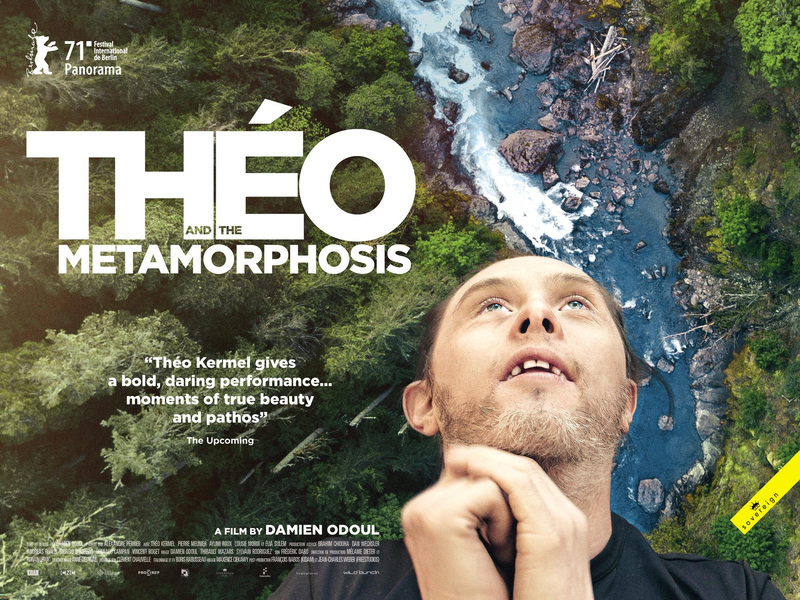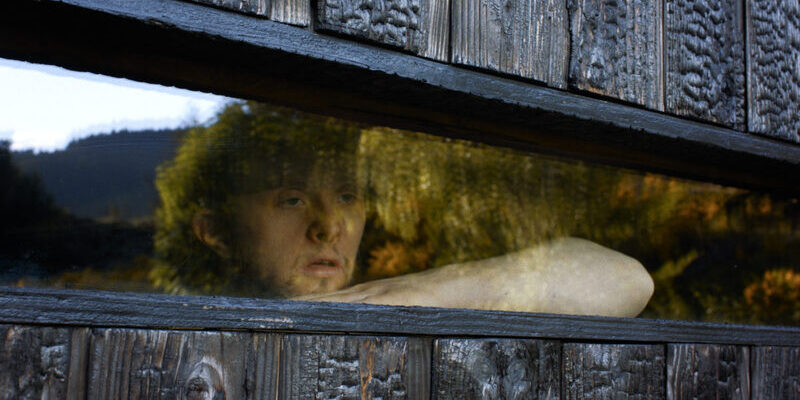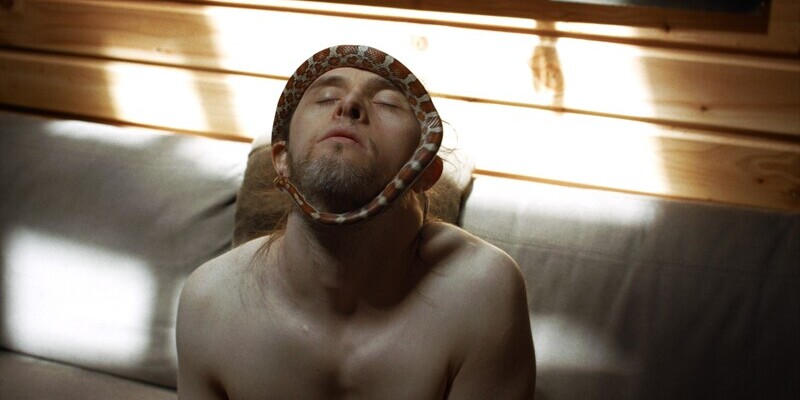
A young man with Down's Syndrome is left to fend for himself when his
father leaves the home in the woods they shared.
Review by
Benjamin Poole
Directed by: Damien Odoul
Starring: Théo Kermel, Damien Odoul, Ayumi Roux, Patrick de Valette, Pierre Meunier

We open in a subterranean cavern below an exceedingly bucolic French
countryside. And within the darkness, a young man, whom we can tell is
practised in spelunking due to his expert use of torch and rope, explores.
There is an ominous rumble, and, as the caves are struck by a tremor, the
reconnaissance turns to a scramble. Rocks plunge, the way out is
treacherous: To’s surroundings are falling around him. When he reaches the
daylight (in a shot framed as a ‘reveal’, indicative of the film’s
mercurial representation of the condition) we recognise that the young man
(Theo Kermel) has Down’s Syndrome. This is To, the titular
character of Damien Odoul’s Theo and the Metamorphosis, and this intense opening is an inaugural metaphor for the ensuing
narrative: a subjective journey into a murky subconscious, and the
perilous impulses within.

Theo and his artist father (Pierre Meunier) enjoy a
semi-survivalist existence in a to-die-for compound deep in the woods.
They fish, knock about on quads, and pretend to be samurais. Well, you’ve
got to have a hobby. The first act of the film depicts the pair as they
skylark, often completely in the nude, about their unusual but happy life,
all narrated by To’s sonorous voiceover. We are given the impression that
this is an existence twice removed from society, where isolation has
encouraged a quasi-feral way of living. Aside from throwing his father in
rivers and cruelly chasing hares around paddocks as part of his ongoing
‘training’, To desultorily watches pornography with his dad in the room
and draws the same image of a fortress over and over. In a Q&A after
my screening, Odoul seemed to suggest that To’s genetic disorder was/is
immaterial to the narrative, but this seems slightly disingenuous: several
times the character speaks about his unique perception of the world, and
with its vivid representation of a rarefied experience the film appears to
explore what it means to be not like other people.

This representation is intensified when To’s father goes on a trip to the
city, leaving To alone. After a goodbye warning him to be careful, the
first thing To does is destroy his father’s works in progress, and the
second is to drag his own bed outside and set it on fire. Or does he? In
its interminable second half, we are never quite sure if what we are
seeing is real or a manifestation of To’s fevered imagination; or, indeed,
if To’s increasingly deranged experiences are a consequence of enforced
solitude or his mental condition. Sexy women appear and either play with
To’s dick or play fight him in the woods. He imagines his dead mother, who
is instrumental in a really silly sequence where he is graphically
castrated. And then, upon his father’s return, To kills him to death,
bundles him up with a rope and throws him in the river for good. This last
bit does actually ‘happen’, as, in the Q&A Odoul confirmed it, plainly
stating that "it is very important to kill the father, for the earth," in
the same self-evident way you’d explain to a child why they should eat
their greens (the q&a was literally amazing: Odoul opened with the
broad statement that Theo and the Metamorphosis would be his
"last film" as the powers that be would probably never allow him to work
again, before going on a rant about how conservative the Gallic film
industry is for 10 minutes, despite evidently allowing and supporting the
existence of this weird and provocative film we’d all just sat through. It
was SO French).

You get the distinct impression that in the latter half of the film, stuff
is just happening, with no real rhyme or reason to it, such is the scatter
shot approach (especially in contrast to the careful invocations of the
first few establishment sequences). To’s perspective, and introspection,
give the film its unique slant, but even that can only go so far, and the
conflation of To’s condition with patricide is unfortunate. Despite an
occasional clumsiness and all the dicks flopping about,
Theo and the Metamorphosis never comes across as
exploitative, but does all feel a bit pointless.

Theo and the Metamorphosis is in UK
cinemas and on VOD now.

